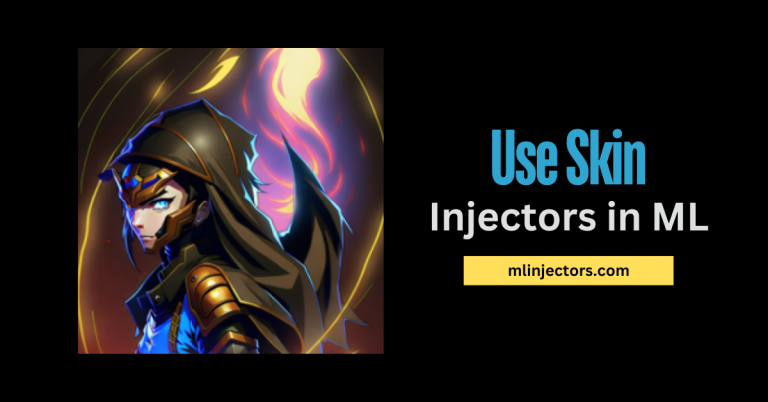Why Hiring a Mobile Game Development Agency is Smarter Than DIY
So, you’ve got a brilliant game idea and you’re thinking, “Why not build it myself?” After all, with all the online tutorials, drag-and-drop tools, and YouTube guides available today, how hard could it be?
The truth is, building a successful mobile game takes a lot more than just code and creativity.
From crafting intuitive gameplay mechanics and breathtaking graphics to performing well across devices and providing silky-smooth user experiences, there’s a big checklist that goes far beyond the fundamentals.
That’s where a professional mobile game development agency steps in. They don’t only create games, they turn your dreams into reality with the appropriate tools, team, and tech. In this blog post, we’ll dissect why outsourcing your game project to an experienced agency can save you time, minimize risk, and enable you to develop a game that actually triumphs in the marketplace.
The Unseen Complexity of Mobile Game Development
Mobile game development is not all about programming a cool idea. It’s a multidisciplinary process that demands proficiency in many specialized fields:
Technical Architecture: Today’s mobile games need advanced backend infrastructure, real-time multiplayer support, cloud enablement, and cross-platform support. Any game left poorly designed tends toward issues of scalability, performance, and costly technical debt.
Platform-Specific Optimization: iOS and Android serve specific needs, counter-pressure standards, and user expectations. Optimization methods, UI/UX considerations, and performance requirements considered over a period of years are special for each platform.
Monetization Strategy: Successful in-game monetization strategies that may include in-app payment schemes, subscription models, ad-coded solutions, and virtual economies are employed in mobile gaming. This means insight into the psychology of players and market trends.
Quality Assurance: For several hundred device configurations with different operating system versions and hardware specifications, mobile games are supposed to run flawlessly. This demands extensive testing requiring special tools, processes, and skills.
The True Cost of DIY Game Development
Although employing a development team may appear costly to initiate, DIY development usually ends up costing much more in the long term:
Protracted Development Timeline: What 6-12 months enables agencies to achieve, usually requires
Internal teams take 2-3 years because of learning curves, inefficient workflows, and technical hiccups. This lengthy period of time results in lost revenue and growing potential costs.
Hidden Technical Debt: Inexperienced programmers tend to build systems that do work, but get progressively harder and more costly to maintain. It can take 3-5 times as much to refactor poorly-written code as to write it properly in the first place.
Failed Launches: Industry statistics indicate that more than 80% of mobile games never make a meaningful return. Experts possess frameworks for resolving issues relating to the industry, which raises the success rate.
Maintenance costs: Mobile platforms require continuous updates, bug fixes, new content rollouts, and compatibility enhancements. Without proper structures and documentation, these efforts can become significantly more expensive and harder to justify.
Why Mobile Game Development Agencies Deliver Better Results Than DIY
When you first get excited about building a mobile game, there’s a tendency to turn to DIY. Game engines and online “how-tos” are now as available as they’ve ever been. So surely prototyping a simple game shouldn’t be that tough, right?
But here’s the catch: making your game concept a successful, scalable, and profitable mobile game takes more than passion and some software. That’s where the advantage lies is in hiring the right custom mobile app development company.
Let’s dissect why using an agency usually results in much better outcomes than trying to do it yourself:
1. Agencies Have a Whole Team of Experts
DIY means you’re doing it all yourself, designer, developer, artist, tester, marketer. That’s not only daunting, it’s wasteful and dangerous. Agencies pool together:
- Game designers are to create enjoyable and interesting mechanics
- UI/UX specialists to make user flows seamless
- Artists and animators to create beautiful visuals
- Backend coders to handle multiplayer or in-app purchasing
- QA testers to find bugs before your users do
- Project managers are to keep things on schedule
This is almost unachievable with solo efforts. Agencies provide polish, performance, and playability, qualities DIY endeavors usually lack.
2. Methodical and Streamlined Development Process
One of the biggest advantages of hiring an agency is its polished development process. Agencies have developed scores or even hundreds of games. They’ve overcome typical bottlenecks, streamlined workflows, and established frameworks that save time and avoid expensive errors.
DIY developers tend to learn through trial and error, which can stall progress and incur technical debt. Agencies avoid the guessing game and concentrate on delivery, in other words, quicker delivery and an improved end product.
3. Premium Tools without the Bill
High-quality games demand high-quality tools for design, testing, analytics, and deployment. Agencies already spend on industry-leading tools such as:
- Unity Pro or Unreal Engine licenses
- Game analytics platforms
- Cloud servers and multiplayer frameworks
- Automated testing systems
- Asset libraries and animation suites
As an individual developer, it costs a lot and is complicated to invest in these tools. With an agency, you have access to all of it without the overhead, and this directly enhances quality and performance.
4. Improved Monetization and User Retention Strategies
It’s easy to build a game. It’s quite another to make money from it. DIY developers tend to neglect monetization models or use generic templates that don’t perform. Agencies, however, take into consideration your game’s genre, audience, and player behavior to select the most suitable strategy, either it’s:
- In-app purchases
- Ads (rewarded, interstitial, banners)
- Freemium models
- Subscription models
They also understand how to make players return with retention hooks, daily rewards, and progression systems, converting casual players into loyal players.
5. Risk Mitigation and Reliable Delivery
DIY initiatives frequently fail midway through due to technical difficulties, a lack of desire, or an incorrect assessment of complexity. Agencies are designed to get projects done on time and budget.
With roadmaps laid out, milestone-based planning, and seasoned project managers, agencies reduce risks. They identify problems ahead of time and make changes when necessary, delivering you a completed product, not a half-finished fantasy.
6. Post-Launch Support and Scaling
Once your game is live, the hard work starts:
- Watching performance
- Bugging fixing
- Releasing new content
- Scaling to more players
- Tuning based on feedback
DIY developers tend to struggle to keep up after launch. Agencies provide sustained support and scalable infrastructure, so it’s simpler to build your game and keep it good over time.
The Strategic Edge of Partnering with a Game Development Agency
Hiring a mobile game development agency isn’t merely about having tasks completed technically; it’s about gaining access to a wider range of strategic benefits that have the potential to make a major difference in your game’s long-term success. Here’s how having the right agency goes beyond coding:
1. Faster Time-to-Market
It’s a fast-paced world of gaming. Markets change overnight, trends reverse in an instant, and consumers demand innovation round the clock. Agencies work with optimized workflows and hand-picked teams that enable them to ship production-ready games 2 to 3 times faster than the average in-house structure.
2. Scalable Talent, On Demand
Game development requirements change. One month, you’re going to need additional animators, the next, backend developers or QA testers. Agencies provide you with on-demand access to an elastic team so you can add or shed team members as your needs change without the cost of hiring and maintaining full-time employees.
3. Post-Launch Long-Term Support
But, certainly, the work did not stop at the successful launch of the game. After it, it is all about updates, fixes for bugs, optimization on performance, expansion of contents, and making use of analytics from time to time. All-inclusive support and maintenance by professional agencies to ensure your game always feels fresh, smooth running, and well-received among players.
4. Access to Industry Relationships
Professional game development companies usually have a network of useful industry contacts, from publishing firms and marketing specialists to Apple, Google, or Steam platform reps. Those contacts could lead to featured placements, app store deals, distribution agreements, and PR that you could never secure on your own.
Wrapping Up
The design of mobile games involves proficiency in different areas, including tech architecture and market psychology. The DIY route may seem alluring, but most firms do not want to learn that it is practically doomed due to the hidden costs, protracted timelines, and failure rate.
Professional mobile game development companies offer “tried and true knowledge, efficient processes, and strategic skill-sets that go a long way in raising their chances of launching a successful game. With over 80 percent failure rates in this business, engaging professionals is never merely a smart move, but an essential part of making the most out of your investment and cementing success in the mobile games industry.






